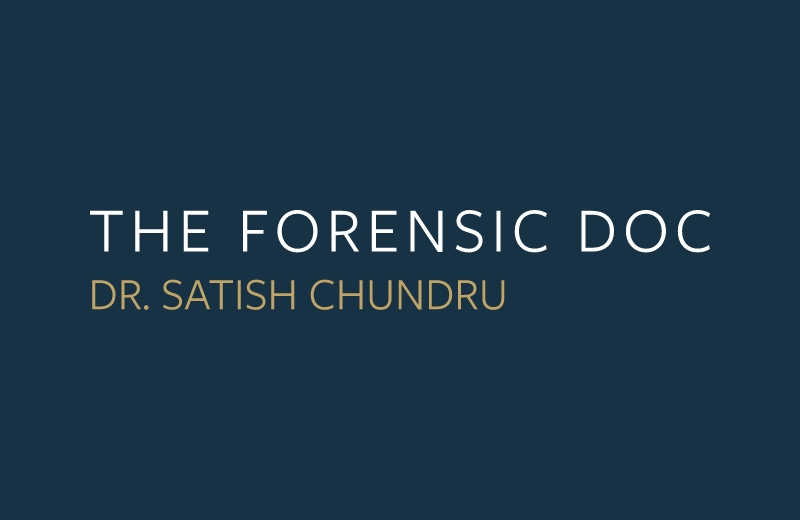 When a loved one dies, family members can be faced with much confusion as well as myriad unanswered questions about the passing itself. What is more is that the circumstances that surround the death of a person may not be clear-cut, straightforward, or altogether obvious, leaving survivors wondering what really happened.
When a loved one dies, family members can be faced with much confusion as well as myriad unanswered questions about the passing itself. What is more is that the circumstances that surround the death of a person may not be clear-cut, straightforward, or altogether obvious, leaving survivors wondering what really happened.
This is especially true in situations where an individual was receiving medical treatment, underwent surgical procedures, or the like, prior to their death—and the timing just does not feel right. If there are questions about the person’s death that are not being answered by their doctor, it is also normal to feel as if they may be hiding something, and suspicious thoughts about what really occurred may arise. In this circumstance, you and your family may start to wonder if you should take legal action and file a medical malpractice lawsuit against the attending physician or physicians.
However, it may be hard to truly know if you have a case or not. This is where a medical record review could help you understand if you have a case that will hold up in court.
What is a Medical Record Review?
There is no need to feel like you are being ignored or overlooked by your loved one’s doctor. Instead, if you feel that there could be underlying medical malpractice or negligence that led to your loved one’s death, it is important to confer with a forensic consultant who has experience in serving as a medical malpractice expert witness and in conducting medical record reviews.
During a medical record review, the forensic consultant, who typically is also a board-certified forensic pathologist, will analyze and evaluate your loved one’s medical records. These medical records will provide information from when they were living and undergoing treatment to their death and are gathered by the legal next of kin. With the medical records in hand, the forensic pathologist can answer basic questions as to how the person passed away and what caused the person’s death. However, detailed questions as to the treatment and proper care are most accurately answered by specialists in the field that deal with living people, such as an internal medicine doctor or a cardiologist if there is a question about the treatment for heart disease. From there, the forensic consultant will weigh all of the information that they are provided with and then offer their professional opinion as to whether they believe medical malpractice occurred.
If you are considering litigation pursuant to your loved one’s passing, a medical record review is typically the recommended and logical second step. The first step is hiring a lawyer before reaching out to a forensic pathologist to review the death of a loved one.
What Type of Documents Are Examined During a Medical Record Review?
The term “medical record” can indeed be an all-encompassing one and be related to many documents associated with a patient’s care and treatment. For instance, during a medical record review, the family will need to request the following:
- The deceased person’s medical records
- Facility records from the place or places where your loved one was receiving treatment
- Written, electronic, and other formats of communication between your family, healthcare staff members, and facility representatives
- Internal communications that involved facility representatives and the attending physician, staff members, and other agents
Once these documents are gathered, and in possession of the forensic consultant, the medical records will be reviewed, and certain information will be sought out. Answers to other questions will also be pursued, including:
- Do the medical records present any inconsistencies? This is especially important when considering internal communications between medical staff and the physician and what, ultimately, was conveyed to the family members of the patient.
- Do any errors appear to be present in the medical records or other documentation?
Examining all of these pieces will allow the forensic consultant to make an informed conclusion as to whether medical malpractice is to blame for the individual’s death—or if no medical errors or negligence occurred.
Medical Record Review Services Provided by Dr. Chundru
Dr. Satish Chundru is a board-certified forensic pathologist experienced in offering medical record reviews. His scope of service aims to assist families as well as medical practitioners, hospitals, and insurers. Furthermore, Dr. Chundru is able to consult with clients all over the United States in the area of medical record review and has the capability of examining the following types of records to assess the why and how behind the death of a patient. Dr. Chundru will offer a professional opinion that is based on years of experience, training, and knowledge in the field of forensic pathology.
Types of Medical Records Reviewed by Dr. Chundru
It is important to understand that medical records are typically incredibly extensive, no matter if you are referencing a healthy, living individual or someone who went through a drawn-out medical treatment process. As such, you need a professional who has a background in practicing medicine and who is capable of understanding and translating all of the medical jargon while also following the progression of treatment and is able to understand what was done and when.
Dr. Chundru can review and potentially explain the following:
- Medical Chronologies: Simply put, the medical chronology offers a list of an individual’s medical history. This record is offered as a chronological list of events that occur within a patient’s medical history. Additionally, a medical chronology is designed to be concise, offering only facts without injecting bias or the opinion of the person who compiled the document and provides insight into the patient’s overall treatment flow. A medical chronology will typically be written in such a way where it is easy to read by people who do not have medical training or understanding of medical jargon or shorthand. The medical chronology will also contain a pre-existing history of the patient, which could include medical history, surgical history, family history, social history (such as alcohol, nicotine, and drug use), and any allergies that the patient had.
- Timeline of Key Events: This is a reference document that describes an overview of when certain treatments, procedures, medications, and the like were administered or performed on a patient. The timeline of key events will outline all important events that could be central to understanding why a patient passed away and if there were any errors made or negligence on behalf of the healthcare provider or facility.
- Identification of Deviations in Standards of Care: As it relates only to a patient who has died, Dr. Chundru has the ability to identify any type of deviation in medical care that was not usual in a clinical setting. He will determine if the standard of care or treatment protocol administered to the patient fell outside traditional and normal standards of care. It is necessary to prove that the medical provider did not deliver the expected level of care or their methods deviated from normal practice.
- Causation Assessment: Depending on the type of case that is being pursued, Dr. Chundru’s abilities to serve as an expert witness or consultant may vary. However, causation is a legal term that refers to required proof related to a particular issue stemming from a specific action in the deceased patient’s treatment or medical plan. Ultimately, through causation assessment, the party that suffered the injury that resulted in death must prove that this happened because of an error or because of negligence on behalf of the attending physician, healthcare staff, or medical facility. Depending on the situation and the type of medical malpractice case that is being pursued, sometimes, causation can be extremely hard to prove.
- Identification of Mitigating Factors: Again, Dr. Chundru’s knowledge in this regard is dependent upon the type of case and circumstances. This relates to any circumstance or fact that lessens the severity or culpability related to medical negligence or indication that an error has been made. For instance, mitigating factors might include the fact that the patient did not follow treatment protocols as prescribed, engaged in drug or alcohol use that interacted with medications, or did something else that lessened the potential of realizing a positive outcome from their medical treatment.
- Alternative Causation Analysis: Dependent once again on the type of case and circumstances, Dr. Chundru could have the potential to identify an alternative cause of death when reviewing medical records as opposed to the initial cause offered by the attending physician, healthcare team, or medical facility. This opinion could then be used against the treating physician’s testimony if a medical malpractice suit is pursued.
- Describe the Standard of Care: Related specifically to the field of forensics and not any other field, Dr. Chundru could potentially describe the standard of care related to relevant forensic issues.
- Assess the Severity of the Injury: Medical records can be examined and reviewed in order to show the timeline associated with the injury that resulted in death, the cost of medical bills, and the overall impact it had on the patient’s life and potential future earnings, etc. Ultimately, this will serve as evidence that the situation that resulted from erroneous or negligent care was not related to a pre-existing condition or another health complaint.
- Determine Case Merit: When you have a medical professional review medical records of a deceased loved one, they can assess whether your potential claim has merit and could stand up in a court of law. In this regard, Dr. Chundru can examine all necessary information to ensure that a case does not have potential flaws that could be exposed down the road and lead to the case being thrown out of court. Determining case merit before a lawsuit is filed presents the potential of saving time and money in case the claim proves meritless.
- Screen Cases for Merit: The merit review process for a medical malpractice claim involves obtaining the patient’s medical history and documenting the individual’s story to identify healthcare facilities, providers, the timeline, etc. It also involves assessing the claim and comparing it to medical literature to provide an objective opinion.
- Build Medical Chronologies and Timelines: Dr. Chundru can organize and compile medical chronologies and timelines based upon the gathered medical records of the deceased patient. This can help reduce the amount of time needed to review medical records and can maintain the integrity of the original documents as received by the healthcare facilities, etc. In building the medical chronology and timelines, certain details will be indexed and organized, including the time symptoms occurred, investigations leading to diagnosis, the treatment line provided, treatment outcomes and changes in medications, insight on missing records and breaks in treatments, and other potential situations surrounding the patient’s death.
- Address the Necessity and Appropriateness of Case, Causality, and Relatedness: Medical records can be reviewed to understand and communicate the case’s necessity and appropriateness and offer a determination on whether there is a reasonable possibility that the medical treatment or plan of care received by the deceased ultimately led to or is related to the adverse event. Dr. Chundru can offer an independent, knowledgeable opinion based on the records reviewed, evidence-based guidelines, and assessment of the actions taken by the attending physician, healthcare team, or medical facility.
- Identifying Factors that Cause Alleged Damages or Injuries: Dr. Chundru can examine a patient’s medical records to identify factors that include accident issues, illness, medical products, pharmaceutical issues, gaps in medical records or poor recordkeeping, surgical errors, delayed diagnosis or misdiagnosis, and other concerns that could have played a role in the negative outcome that was experienced.
Why Are Accurate Medical Records So Important?
Medical record keeping is essentially a science unto itself—and it is so important that these documents be handled accurately and effectively. They are the only way that a physician can properly convey that a patient’s care was managed correctly and according to diagnosis and plan. Ultimately, if there are gaps in medical records or if the medical records that are reviewed after a patient’s death lead to more questions, then this could strengthen and improve the merit of a medical negligence claim.
What Happens After the Medical Record Review is Complete?
After the medical record review is complete, it is normal to wonder about what happens next. As such, this marks the time to interpret the results. Of course, as this is likely an emotionally charged and sensitive situation, understanding the medical record review’s findings can feel intimidating.
It is important to know that even though the information contained in the records is highly technical, medically focused, and scientific, the forensic consultant you partner with in this endeavor will be there to translate the information and simplify it for you.
Should you decide to work with Dr. Chundru on this matter, he will ensure that you understand—in layman’s terms—the circumstances related to your loved one’s death if there was an error or negligence.
Dr. Chundru will also prepare the findings for review by legal professionals who might be studying the materials in relation to a future medical malpractice lawsuit as well as other medical professionals who may be charged with appraising the information on behalf of a plaintiff or defendant—or if they are asked to serve as an expert witness.
The findings will contain the appropriate language and terminology needed in a legal or medical setting—while also breaking down complex terms, so they are easy to understand by you and your family.
Is a Medical Record Review Still Required if No Lawsuit is Filed?
Of course, a medical malpractice suit may not be filed in every situation—and medical malpractice is not the cause of every person’s death. However, medical record reviews, in any situation, can potentially help loved ones find closure and answer questions about their family member’s passing. A medical record review can be a helpful first step in moving on.
Reach Out to Dr. Chundru for a Medical Record Review
If you have recently faced the death of a loved one and have outstanding questions about the reason behind the passing or feel that an error or negligent medical care could be involved in the situation, reach out to Dr. Chundru and learn how he can help you. He is capable of completing a medical record review in all 50 states and welcomes the opportunity to assist you as you seek peace of mind in this troubling endeavor.







